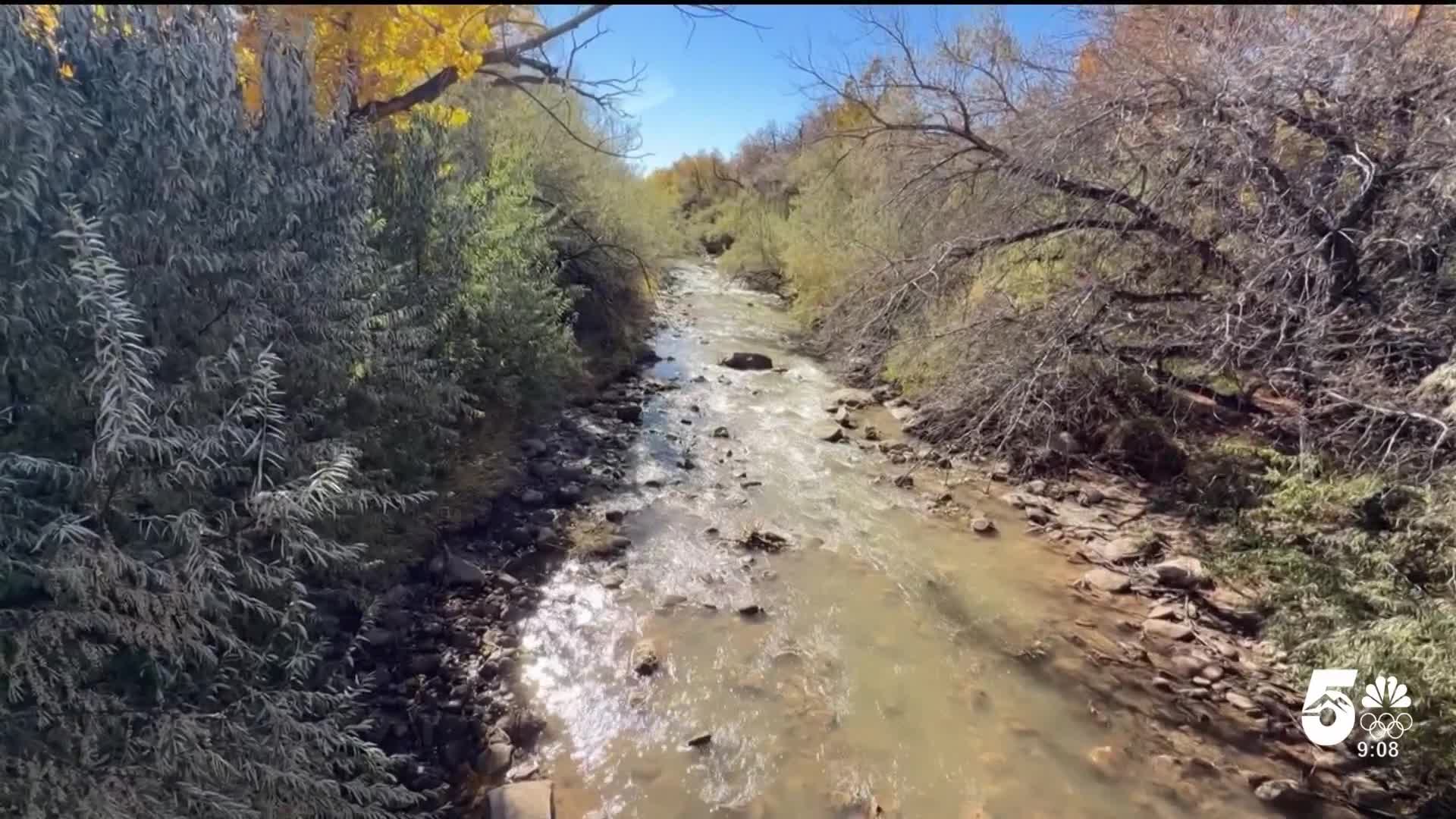COLORADO SPRINGS, Colo. (KOAA) — States that rely on the Colorado River are racing toward a Tuesday deadline to reach a new agreement on how the river’s two largest reservoirs, Lake Mead and Lake Powell, are managed.
40 million people rely on the Colorado River Basin. It spans seven states, 30 tribal nations, and parts of Mexico.
Colorado, Wyoming, Utah, and New Mexico are considered Upper Division States. Nevada, Arizona, and California are Lower Division States. Lakes Mead and Powell are the two largest reservoirs in the basin, but both face historic low levels. According to Colorado Springs Utilities, the reservoirs are experiencing prolonged drought due to climate change and ongoing lower basin overuse.
Rebecca Mitchell is Colorado's commissioner to the Upper Colorado River Commission. Last month, she gave an update to the Colorado Springs Utilities Board on the status of negotiations between Upper and Lower Division states — trying to decide on new operational guidelines for Lakes Mead and Powell.
“Right now the sticking points are how do we operate those reservoirs to do better," Mitchell said.
Interim guidelines for river management, agreed to in 2007, expire in 2026. The guidelines include how to share and manage water when needed, plus rules to coordinate storage between reservoirs. Between higher demand and prolonged drought over the last two decades, a present-day update is needed.
“We know that the rules we’re currently working under are not working," Mitchell said. "We’re at the bottom of the reservoirs. We’re in the 30% in both of those reservoirs, we need to do better.”
The deadline to reach a new agreement and inform the Interior Department is November 11th. If negotiations fail, federal intervention is possible.
“If we don’t come to a deal as seven basin states, they’re going to have to move forward and determine how they’re going to operate those reservoirs into the future," Mitchell said. "I think that’s what we’re up against right now, is how much say in that do we get.”
According to Colorado Springs Utilities, Colorado Springs sources half of its water supply from the Colorado River Basin through trans-mountain diversions. When reuse of those supplies is included, they account for nearly 70% of the city’s total water use.

After 3 Years and Multiple Fires, This Historic Landmark Is Reopening
The historic Navajo Hogan, a 91-year-old Colorado Springs landmark, is set to reopen next month after being closed since 2021. The new owners talk about the "leap of faith" required to restore the building and honor its unique history.
Water Resource Manager Kim Gortz says Colorado Springs Utilities includes some Colorado risks in its long-range planning. Colorado Springs Utilities shared these details with News5:
We plan for and model the following risk scenarios to ensure we can supply water to our customers:
- Sequences of temperature and precipitation reflecting a range of drought cycles.
- Twenty percent (20%) reduction in Colorado River sources for one 10-year period over a 50-year time series.
- Twenty five percent (25%) reduction in all exchange potential* during the same period.
- One year outage of our Otero Pump Station/Homestake Pipeline.
*Water exchanges are mechanisms to move water upstream without a pipeline. They don’t create new water supplies but allow us to store water upstream and release an equivalent amount downstream without injuring other water rights holders. Exchanges are critical for our water supply and occur daily throughout our system.
Not reaching a consensus on the post-2026 operational guidelines by the November 11 deadline doesn’t equate to failure. Negotiations may look different but will continue, and we support Commissioner Mitchell’s aggressive position to protect Colorado water users. There are multiple steps and unknowns during negotiations and until all legal matters are exhausted, including how the State of Colorado would administer a Colorado River Compact Call, we will stay actively engaged to understand risks and implications.
- Additional strategies we are implementing to minimize the risks to our Colorado River supplies that are outlined in our long-term plan are:
- Diversification of our water supply portfolio.
- More flexibility in the way we can reuse our transbasin supplies.
- Increasing our reservoir storage capacity.
- Water conservation – is a key strategy in our long-term water plan.
- In Colorado Springs, we have reduced our per capita water use by 40% since 2001 through customers’ efforts to use water wisely.
- Our plan targets up to 8,000 acre-feet of additional water savings to be achieved through additional water conservation.
“I think the way Becky Mitchell is fighting for all of Colorado’s uses, and as she said, our future that we were promised under the 1922 compact, I think we’re confident the worst case scenario won’t come out of that," Gortz said.
The 1922 Colorado River Compact is a water sharing agreement. It equally allocates water from the Colorado River between Upper and Lower Division states. According to Commissioner Mitchell, water use in the Lower Basin continues to exceed available supplies. Between dry conditions and abiding by the compact, Upper Basin states often go without their fair share.
"The Upper Division states have often gone without their full apportionment due to dry conditions and the need to ensure the Lower Basin States receive their full apportionment and not violate the Compact. In recent years, additional water has been authorized for release from federal reservoirs in Colorado to help shore up Lake Mead as it reached critical levels."
“We’re really trying to protect not just one sub-sect of Coloradans, but all Coloradans," Mitchell said. "I’m trying to take the broad perspective to the table. That’s my goal right now.”
Email Senior Reporter Meghan Glova at meghan.glova@koaa.com.
Follow Meghan Glova KOAA on Facebook and @meghanglova on X.



